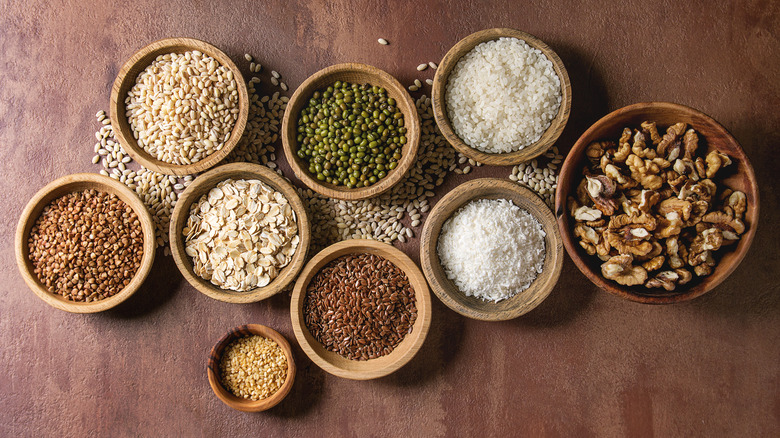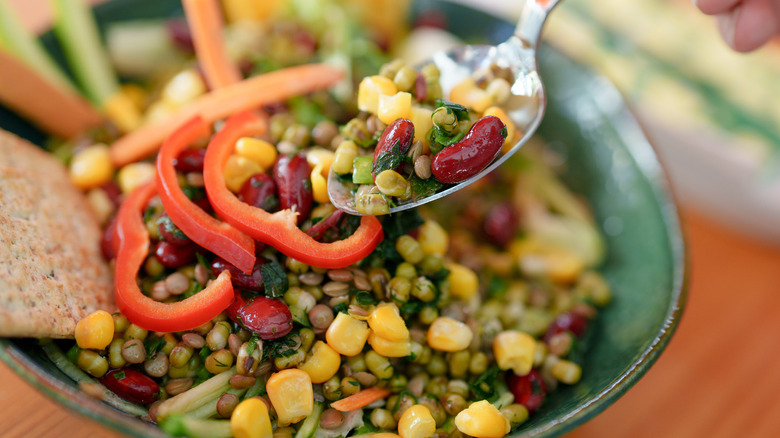The Cooking Method You Need For Perfectly Tender Grains Every Time
Whole grains are a nutritional addition to every diet, and it seems like the types available are endless. You might be most familiar with rice, oats, and quinoa, but the varieties range from amaranth and bulgur to spelt and wheat berries. While it can feel intimidating to learn how to cook grains for fear of under or overcooking them, you don't have to search for the best way to cook farro or a special technique to make barley properly. One cooking method that never fails to produce tender grains of all kinds is boiling them like pasta.
No matter which grain you want to cook, it's recommended that you rinse it first. Like with fresh produce, it's important to remove any debris, dirt, dust, and chemicals that remain after processing. You don't want those to be in your finished dish. Also, rinsing removes excess starches or coatings on some grains that otherwise affect the results. With white rice, for instance, you want to remove the outer layer of starch so that the kernels get fluffy rather than sticky. Rinsing quinoa first removes the natural saponin coating that makes the grain taste bitter.
Next, add your grains to salted boiling water, using more water than for the absorption method. Instead of covering and simmering, you'll stir frequently until the grains are soft and chewy, which will take longer for some grains than others. Then, drain the leftover water, and depending on your recipe, use the cooked grains right away or allow them to dry out first.
Tips for making grains faster and tastier
Since it takes about an hour for some grains to get tender (like hulled barley and spelt and wheat berries), quickly cooking them seems impossible. However, you have a couple of options to speed up the process. One is to soak the grains in water for a few hours before boiling, which is ideal for all types of dishes and makes them easier to digest. The other is to pulse them in a blender or food processor for up to a minute, which works best when making a porridge.
Also, grains alone can taste bland until you add seasonings and other ingredients to your recipe, but there are ways to enhance the natural flavor and infuse other flavors. For example, toasting your grains in a heated pot for one or two minutes, or in the oven for about 10 minutes ahead of time, will bring out a nuttier flavor.
Another option is to add aromatics and herbs — such as garlic, onion, rosemary, and thyme — to your boiling water so that the grains soak up those flavors. You can even use feta brine to cook grains or add flavored oils and white wine for a flavor boost. Marinating after cooking is a third option because the heat allows the marinade to penetrate the grains, infusing them with flavor.

